DePauw has a long tradition of global education with records showing off-campus study participation as far back as the 1930s. Since then, thousands of DePauw students have taken the opportunity to experience an international education. In recent years, students have been able to choose from around 160 off-campus programs, in 6 continents and 45 countries.
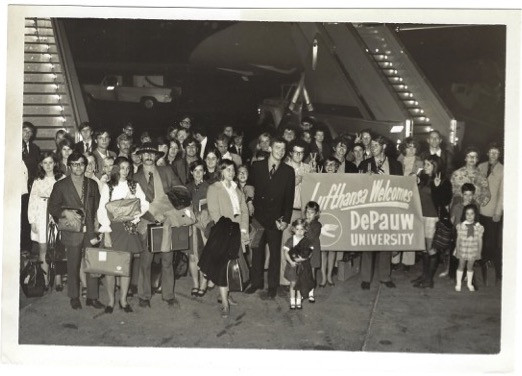 "This is a September, 1970, picture of the DePauw group at New York's JFK airport as
"This is a September, 1970, picture of the DePauw group at New York's JFK airport as The following is taken from DePauw University - A Pictorial History by Professors Clifton J. Phillips & John J. Baughman.
Records show the first international students arriving at DePauw in the 1870s, and a DePauw President spending a year in China from 1921 to 1922, however the first records of off-campus study are from the 1930s.
1935-1936 - European exchange with various European universities
“DePauw University ...pioneered (in) the development of a systematic student foreign exchange program.
Drawing in part upon educational contacts in his native Germany, Professor Hans Grueninger of the German department inaugurated a series of annual exchanges of students between DePauw and various European universities in 1935-36.
Over the next several years a few DePauw students spent their junior year in Berlin, Cologne, or Freiburg, while students from those institutions enrolled at DePauw.
Some Greek-letter living units cooperated with the program by providing board and room to foreign exchange students, and the Rector Scholarship Fund made scholarship funds available.
Eventually the program was expanded to include universities in France, Switzerland, Austria, the Scandinavian countries, and South America, though the outbreak of the Second World War brought about a temporary interruption of student exchanges in the years after 1939.”
1940s - Revival and expansion of the foreign study program
“Shortly after the war's end Professor Hans Gruéninger revived and enlarged the foreign study program begun in the mid-1930s.
Student exchange programs with foreign universities in Europe and Latin America were revived and new ones instituted, notably with the Universities of Durham and Exeter in the United Kingdom.
Selected DePauw undergraduates spent their junior year studying in Austria, Colombia, Denmark, Equador, France, Germany, Great Britain, Mexico, the Netherlands, Norway, Spain, Sweden, and Switzerland. A smaller number of foreign students attended classes at DePauw, living in dormitories and Greek-letter living units and participating to a large degree in the life of the campus.”
1950s - Junior Semester Abroad Plan
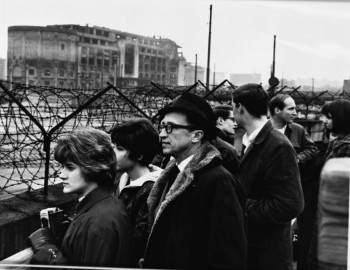 “DePauw's foreign study program expanded to include sending groups of students under the supervision of a faculty member to various European cities as part of a Junior Semester Abroad plan.
“DePauw's foreign study program expanded to include sending groups of students under the supervision of a faculty member to various European cities as part of a Junior Semester Abroad plan.
Professor Bergmann of the English department led the first group to Zell am See near Salzburg, Austria, in 1959. This program was later shifted to Vienna.
In 1960 Professor Fuller of the zoology department initiated a similar program in Freiburg, Germany. Later Athens, Greece became the center for another program.” (The Mediterranean Studies Program)
1960s
"In 1967 the university initiated an African Studies program at the urging of President Kerstetter, who had recently visited several countries in that continent and advocated DePauw's assuming a special academic interest in that part of the world. The first director of the program, anthropologist Svend E. Holsoe, established an African anthropological museum in the basement of Asbury Hall and published the Liberian Studies Journal from his DePauw office.
His successors, historians Walter T. Brown and John E. Lamphear, expanded the program to include on-campus institutes and study tours in Africa.
To encourage the study of Africa, Asia, Eastern Europe, and Latin America the faculty also adopted a non-western graduation requirement and began to add more courses in the history, language and literature, and general culture of those areas. Chinese, Japanese, and Swahili were taught for several years, and growing numbers of foreign students and visiting professors were brought to the campus. "
1970s
“To help achieve the administration's goal to offer every student an opportunity to become acquainted with another part of the world, a greater variety of foreign study programs was made available.
In addition to DePauw's own two Contemporary Europe Semester programs, one based in Freiburg and the other in Vienna, and the Mediterranean Studies program based in Athens, there were several GLCA-sponsored programs located in Africa, Colombia, Hong Kong, India, Japan, Scotland, and Taiwan.
DePauw students also had the option to enroll in a foreign university on an individual basis or participate in an overseas program administered by another institution. Though not everyone took advantage of these opportunities, a large majority of the student body participated in some kind of off-campus educational experience, either abroad or in one of the various domestic programs located in New York, Philadelphia, Washington D.C., Oak Ridge (Tennessee), and other cities.”
1971 - The first off-campus Winter term
“The first Winter Term in January 1971, featured such special events as lectures by architect R. Buckminster Fuller and the conducting of composer Aaron Copland at a Contemporary Music Festival sponsored by the School of Music. Winter Term eventually proved to be a convenient opportunity for professional internships, volunteer work projects, and study abroad. The program was later amended to include two-week as well as four-week projects, and the graduation requirement was reduced to seven two-week projects or three and one-half Winter Terms.”
1979 - Appointment of Director of Foreign Study and Off-Campus Programs & Coordinator for Winter Term off-campus projects
"One of President Rosser's first tasks was to reorganize the administrative departments of the university ... faculty members named to part-time administrative posts were the following:
Amir Rafat of the political science department as director of foreign study and off-campus programs, succeeded later by Darrell La Lone of the sociology and anthropology department; Margaret E. Catanese of the economics and business department as coordinator for individual Winter Term off-campus projects."
1980s
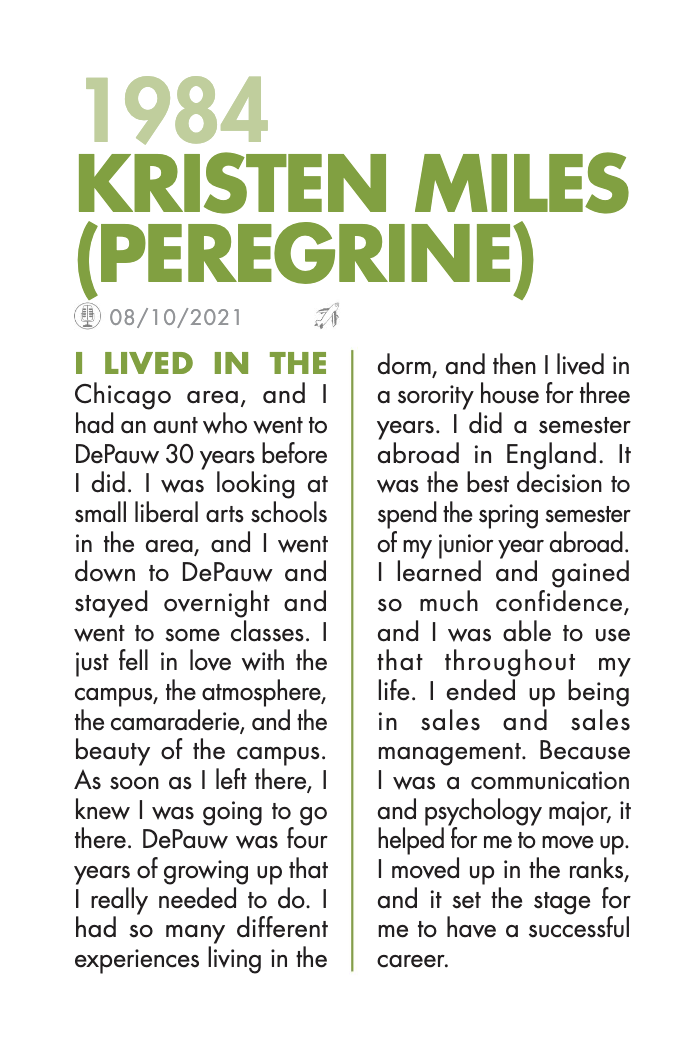
1990s
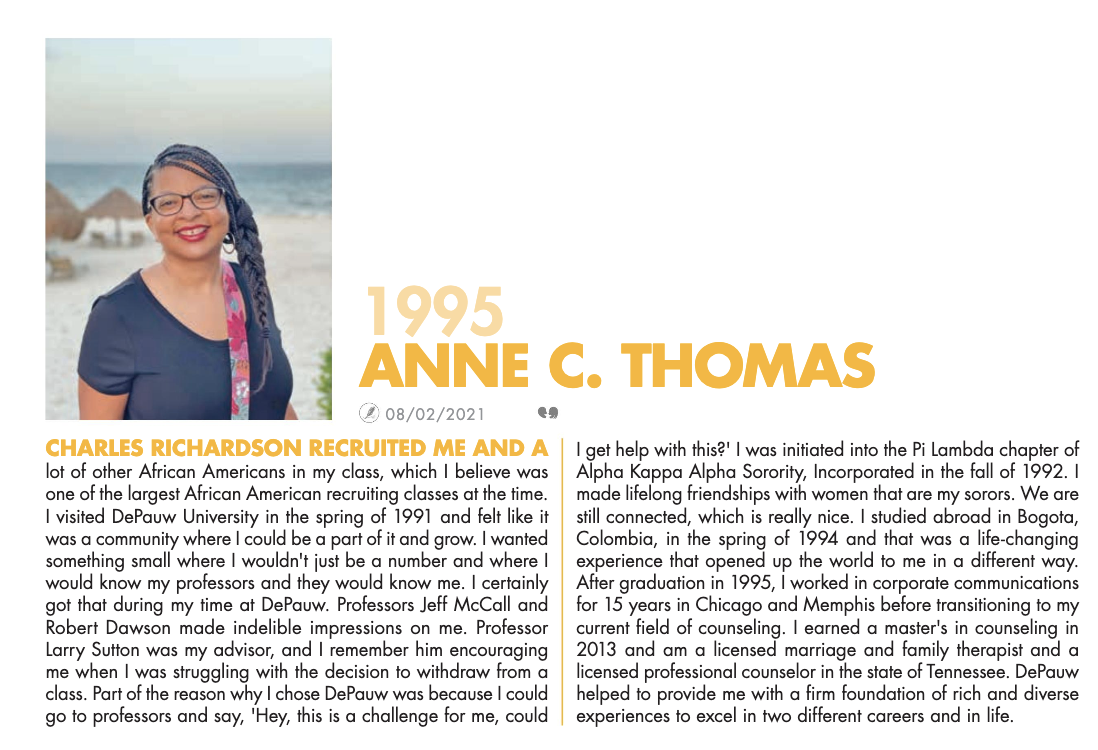
2000s
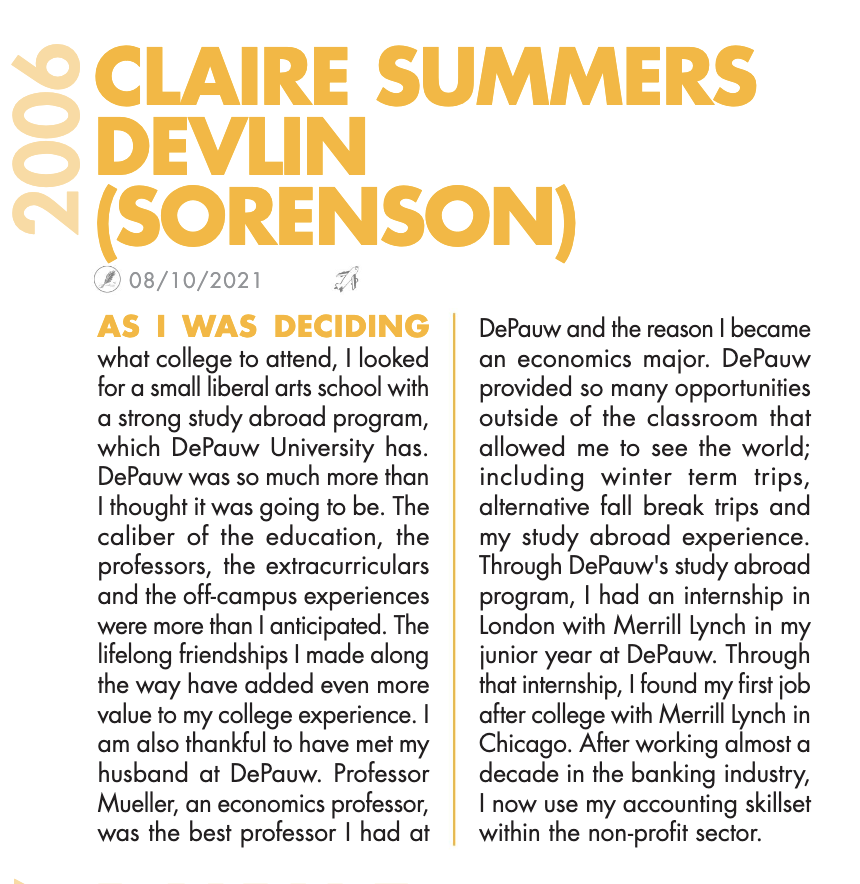
Taken from "Grateful to be Gold - The Oral History Project 2022"
